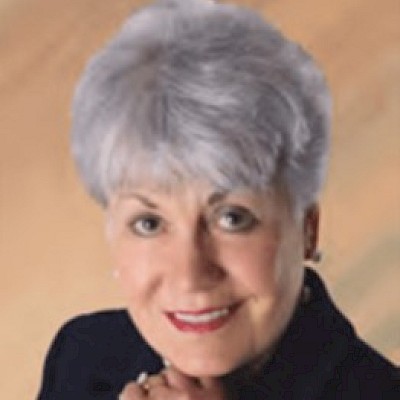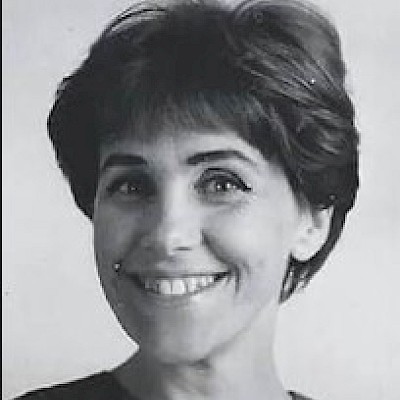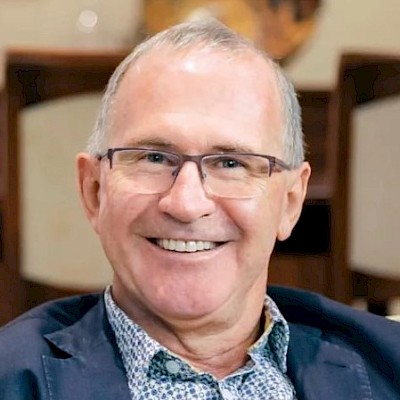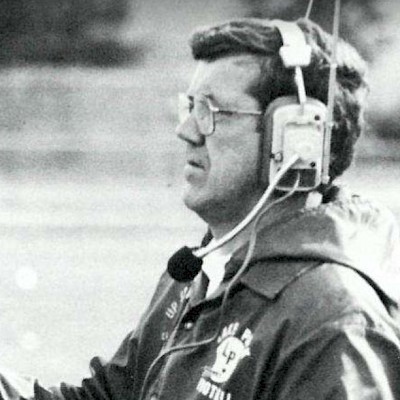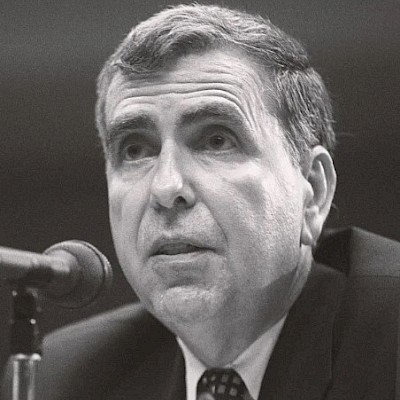Gerald Levin, the visionary executive in the early days of HBO whose career will be forever marred after he orchestrated the merger of Time Warner and AOL, a debacle that destroyed the value of employees’ retirement accounts and culminated in a historic $100 billion write-down, has died. He was 84.
Levin died Wednesday in a hospital, his grandchild Jake Maia Arlow told The New York Times. He had battled Parkinson’s disease since being diagnosed in 2006 and lived most recently in Long Beach, California.
Levin was an attorney who worked for a year in Iran before joining HBO at its inception in 1972 as a programming executive. He was promoted to CEO a year later, and a year after that he convinced parent company Time Inc. to take HBO to cable companies nationwide via satellite technology, earning him the nickname of “resident genius.”
The Philadelphia native and University of Pennsylvania Law School graduate was elected a Time board member in 1988 and quickly helped arrange the company’s $14 billion acquisition of Warner Communications, bringing Warner Bros. and Warner Music into the fold.
Levin was named co-CEO of Time Warner along with Steven J. Ross in early 1992, then had the title for himself when Ross died 10 months later from prostate cancer.
Time Warner meandered under Levin’s early tenure, but he impressed Wall Street in 1996 by acquiring Turner Broadcasting System, thus adding CNN, TNT, TCM and Cartoon Network to the conglomerate’s growing list of assets. The merger also returned to Warner Bros. rights to its pre-1950 movies, which Turner had purchased years earlier, and it made media mogul Ted Turner a board member and primary Time Warner shareholder.
In 1997, Levin’s son Jonathan, a 31-year-old high school English teacher in the Bronx, was murdered by a former student who tortured him with a knife until he surrendered the password to his bank ATM card. Friends called the tragedy a “defining moment” for Levin, who already had a reputation for quoting Greek philosophers and the Bible, and he began brainstorming ways to leave an inspiring, world-changing legacy through his leadership of Time Warner.
“Levin presented himself as a scholarly, upright man who just happened to be the CEO of the world’s largest media company. He didn’t just want to be remembered as a CEO who’d improved the bottom line; he aspired to be known for so much more,” Nina Munk wrote in her 2004 book, Fools Rush In: Steve Case, Jerry Levin, and the Unmaking of AOL Time Warner.
In the late 1990s, Levin figured, correctly, that the Internet would forever alter the way media was delivered and sought a dramatic way in for Time Warner, which had stumbled with its own lackluster digital initiatives like Entertaindom and Full Service Network.
After months of negotiations between Levin and AOL CEO Steve Case, they agreed to merge the two companies, with 55 percent going to AOL’s shareholders and 45 percent going to Time Warner’s. The latter company was far bigger in every metric (annual revenue, for example, was $27 billion vs. $5 billion) except for one: market capitalization, which is the value Wall Street put on each of the company’s shares.
By the time the merger was announced in early 2000, AOL’s 17 million subscribers already were growing impatient with slow, dial-up internet providers, and soon they’d be fleeing in droves for high-speed cable providers like Time Warner Cable, owned then, of course, by Time Warner.
After the merger, Levin pledged that synergies and the internet’s rapid growth would quickly lead to $40 billion in revenue and $11 billion in cash flow for the newly minted AOL Time Warner. However, a bursting stock bubble, falling ad rates and the terrorist attacks of Sept. 11, 2001, devastated the company.
Levin stepped down as CEO of AOL Time Warner in May 2002, replaced by Richard Parsons, and that year the company reported a $100 billion loss, the largest in the history of corporate America. A year later, Parsons removed AOL from the company name.
At its nadir, which didn’t come until several years after Levin’s departure, shares of the company known again as Time Warner had lost 92 percent of their value, and Levin went on CNBC in 2010 to apologize to shareholders, in particular employees who lost their jobs or saw the value of their retirement accounts plummet.
“I presided over the worst deal of the century, apparently … I have obviously been reflecting on that,” he told CNBC anchor Joe Kernen. “I’m really very sorry about the pain and suffering and loss that was caused.
More recently, Levin had been encouraging media moguls — and CEOs in general — to push for social change and not worry about offending Wall Street, and a couple of issues he was passionate about before his death were holistic health care and gun control. He referred to himself as “a dedicated, religious vegan” in a June 2016 interview with The Hollywood Reporter.
“How can you justify an assault rifle as being a valid Second Amendment instrument? Let’s hear from some of the people that lead our companies what they believe,” Levin said during that interview, which occurred two weeks after Omar Mateen killed 49 people at a gay nightclub in Orlando. “Every time there is a murder or a mass killing, it brings back my own family’s experience, and each time I hope that we are going to do something.”
In 2004, Levin married his third wife, Dr. Laurie Ann Levin, a former producer, agent and wife of producer Jack Rapke, and he had been helping her run Moonview Sanctuary, a posh, holistic healing institute she founded in 1998 in Santa Monica. He also backed StartUp Health, which invests in next-generation health initiatives, and he brought Case in as an investor as well.
Levin also was a senior adviser to Oasis TV, which has been trying to establish itself as a provider of TV content for the spa crowd.
Levin went public about suffering from Parkinson’s disease shortly after Robin Williams committed suicide in 2014, in part because Williams was depressed and thought he was in the early stages of the same disease. (An autopsy later revealed that the comedian actually had suffered from Lewy body dementia, not Parkinson’s).
“I was trained not to show my emotions. You couldn’t tell by looking at me what I was thinking because I was an ace negotiator. I mean, life was a poker game. What a terrible thing. So I don’t let Parkinson’s dominate my life,” he told THR.
“I’d love to open a treatment center that treats everybody in the world. Not just for addiction or depression or mental health issues or Alzheimer’s. Everybody needs help.”
Levin was previously married to Carol Needelman and Barbara Riley. Survivors include his children, Anna, Laura, Leon and Michael, and seven grandchildren.
